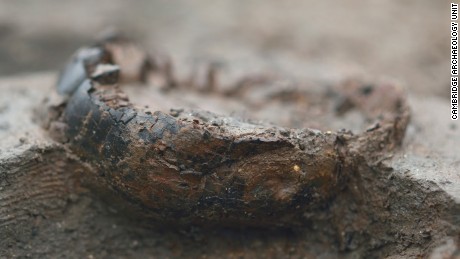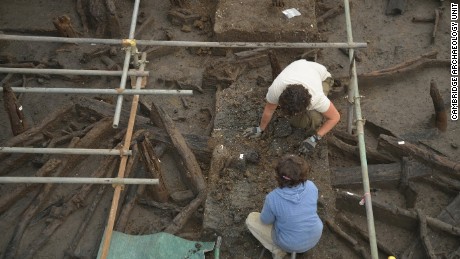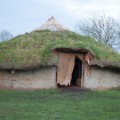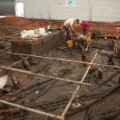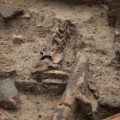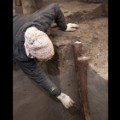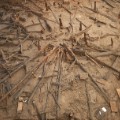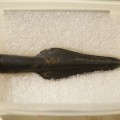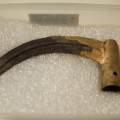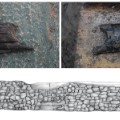Story highlights
- Remains of people believed to have been buried about 2,500 years ago have been found in northern England
- The findings will pave the way for the largest study of an Iron Age population in 35 years
London (CNN)The remains of men, women and children believed to have been buried about 2,500 years ago have been found in a town in northern England, according to the Press Association news agency.
The findings have been hailed as "a hugely important discovery," which can boost experts' understanding of Iron Age Britain, Paula Ware, managing director at MAP Archaeological Practice, told PA.
Builders found the ruins of the burial ground working on a housing development in the town of Pocklington, East Yorkshire.
The site includes more than 75 square barrows containing skeletons believed to be the remains of people from the Arras Culture who lived in the region in the Middle Iron Age as far back as 800 B.C.
Archaeologists also found weapons on the site, including a shield, a sword and 10 spears, and artifacts such as ancient pots, brooches and 360 amber and glass beads.
"We are hoping that these findings shed light on the ritual of Iron Age burial," Ware said.
"As we can assume from the shield and sword burials, these were significant members of society, so our understanding of culture and key figures of the time could be really enhanced."
The findings will pave the way for the largest study of an Iron Age population in almost four decades.
The analysis will center on whether the population was indigenous or had migrated from the continent. Archaeologists also hope to find out how these people died, whether they were related and what stresses the bodies went through while they were alive.
"At present we are still at the early analytical stages of reviewing these findings," said Peter Morris, development director at David Wilson Homes, where the remains were found.
"However, we do understand that this discovery is very rare and of international importance."

